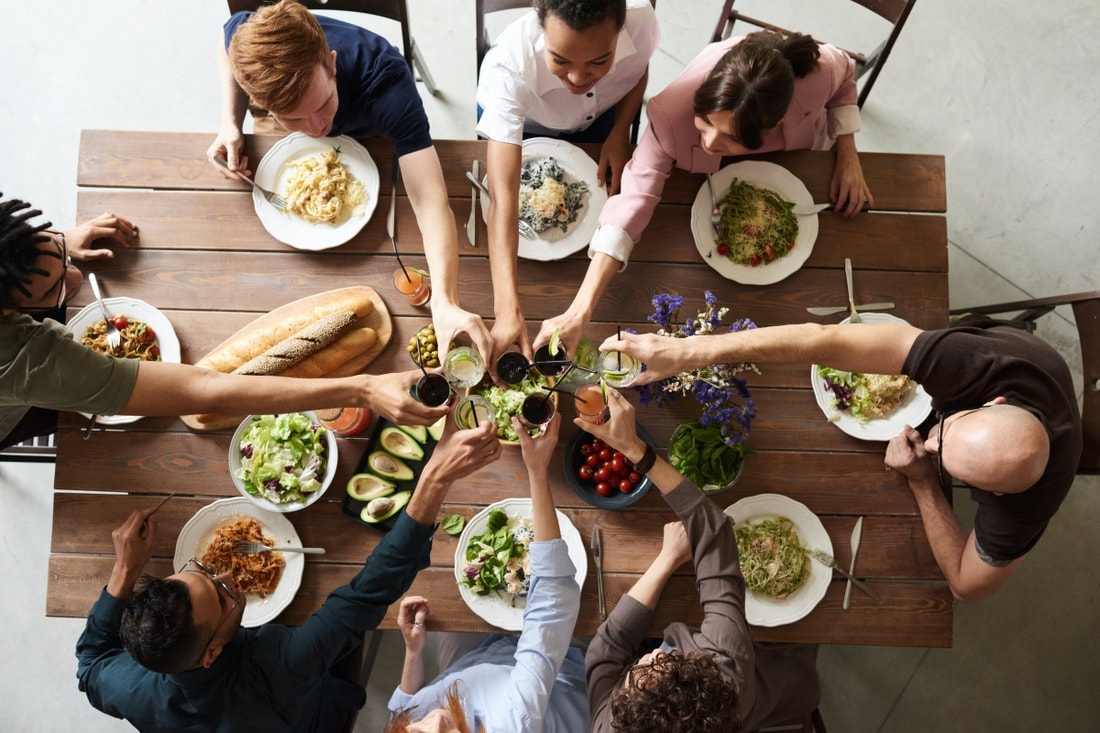|
The food and beverage industry is exploding with flavors from a rise in plant-based alternatives to the resurgence of fermented foods. In 2024, gastronomic experience focuses on more sustainable, personalized, and experiential dining experiences.
Did you know . . .
New and fresh flavors and ingredients create opportunities for exciting product launches and line extensions to capture consumer attention. To help savvy food and beverage marketers stay abreast of industry trends, Allen Marketing Communications, Inc., a boutique food and beverage PR agency based in New York City, delve into the key trends poised to redefine the food and beverage landscape in 2024. Hyper-Local And Hyper-Global Fusion Hyper-local and hyper-global fusion refers to the phenomenon of foodies seeking out both local and global experiences simultaneously. This trend is fueled by the rise of globalization and technology and it makes it easier than ever to connect with people and cultures from all over the world. A report by The Kitchen Community found that “80 percent of consumers are interested in learning more about the origins of their food and consequently people are inclined more toward experiencing new cultures and cuisines, especially when traveling.” This trend is emerging as a culinary tour de force. Chefs and food innovators are offering traditional ingredients with global influences, creating a vibrant tapestry of flavors that appeals to both the local palate and the globetrotters. Expect to see dishes such as kimchi tacos, matcha-infused croissants, and other surprising combinations that celebrate the best of both worlds. Plant-Powered Revolution The plant-powered revolution is a much-needed shift towards sustainable and ethical dining. According to the Plant-Based Foods Association study, “62 percent of consumers are trying to eat more plant-based meals. Additionally, 29 percent of consumers are making an effort to avoid meat altogether. The plant-based eating trend is particularly strong among younger generations, with 73 percent of millennials and 70 percent of Gen Z respondents indicating an interest in plant-based foods.” Food and beverage companies are now expanding its product lines to include innovative plant-derived dairy, seafood, and egg alternatives – making the world more Vegan-friendly. Immersive Dining Experiences Consumers are now seeking immersive dining experiences that engage all their senses - from interactive dining events to augmented reality-enhanced menus, the focus is shifting from a mere dining place to a place where consumers can create memorable moments. Immersive dining experiences often have a strong theme, such as a specific period, location, or genre. Modern consumers relish the environment as well while savoring the local or international flavors. It’s not just limited to theme but extended to theatrical elements, interactive experiences, and sensory experiences. According to a study by Eventbrite, “75 percent of diners are willing to pay more for a unique dining experience.” Mindful Mixology In the world of beverages, mindful mixology is gaining momentum. Consumers are increasingly seeking beverages that not only tantalize their taste buds but also offer wellness benefits. According to the Distilled Spirits Council of the United States (DISCUS) study, “27 percent are willing to pay more for cocktails made with high-quality, less processed ingredients. This trend is particularly evident among 62 percent of millennials and 59 percent of Gen Z respondents.” In addition, pubs, bars, and restaurants are offering innovative non-alcoholic drinks to attract modern consumers. From non-alcoholic cocktails to mood-enhancing elixirs, the beverage industry is crafting innovative concoctions that cater to the holistic well-being of the consumer. Zero-Waste Gastronomy Zero-waste gastronomy is making strides as chefs and restaurants find innovative ways to minimize food waste. From root-to-stem cooking to upcycled ingredients, the culinary space is embracing sustainability as a core value. The World Wildlife Fund’s recent survey suggests that “73 percent of consumers are concerned about food waste.” Brands and hospitality service providers are more and more focusing on adopting and communicating eco-friendly practices to contribute to a greener planet and sit well with the eco-conscious consumer. Leveraging The Trends With Strategic PR Selection Our food and beverage professionals help brands capitalize on the growing food and beverage trends to remain relevant and appealing to their consumer base. The key to success lies in understanding, adapting, and innovating within the dynamic shift of the food and beverage world. By Joanna Allen, chief executive officer, Allen Marketing Communications, Inc.
0 Comments
Leave a Reply. |
Archives
July 2024
Categories |
HoursM-F: 8:30 am - 6 pm
|
Telephone(917) 371-3753
|
|
Quick LInks |

 RSS Feed
RSS Feed